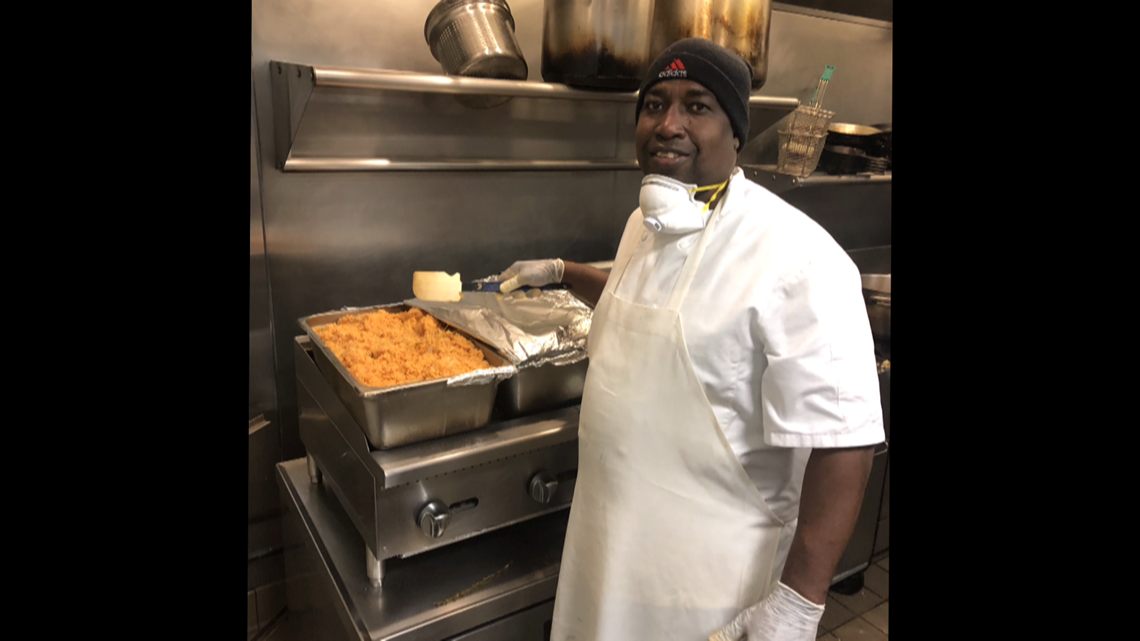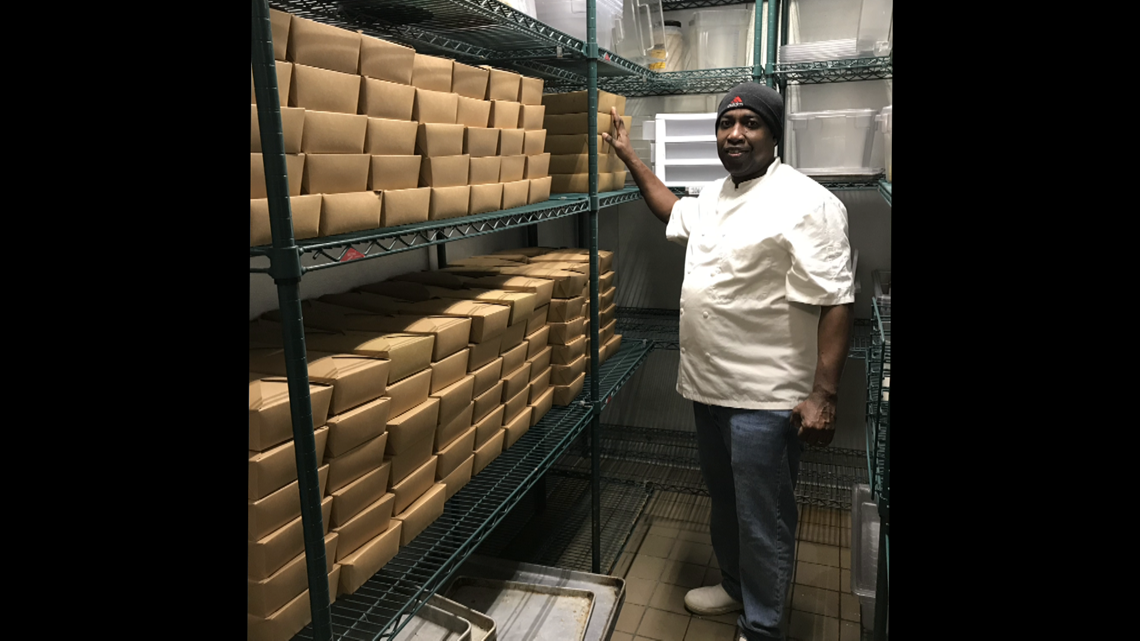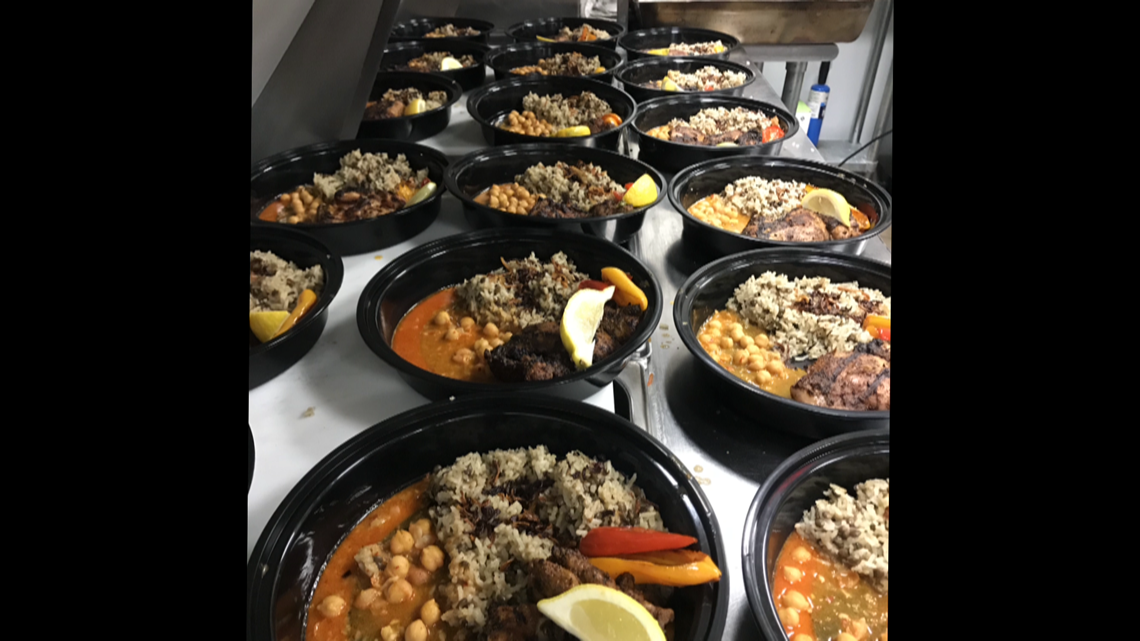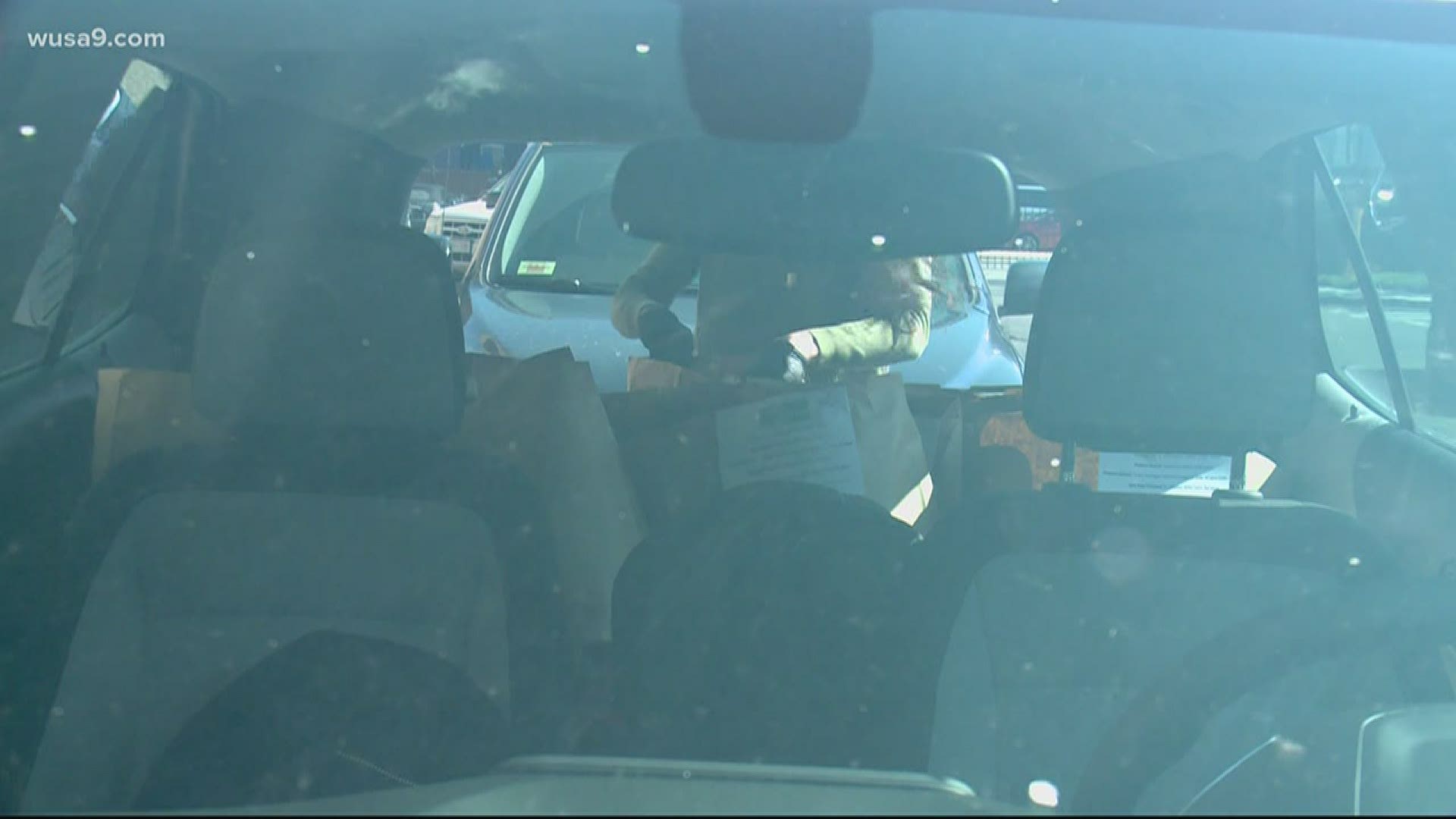WASHINGTON D.C., DC — When restaurants were forced to shut their doors during the coronavirus pandemic, it had a trickle effect on the people that rely on those jobs and work spaces.
Tables Without Borders was one of those organizations that wasn’t able to function like normal because of a sudden change in the restaurant industry.
Tables Without Borders is a nonprofit organization that provides internships for D.C. refugees and asylum seekers who had culinary backgrounds in their home countries.
The chefs intern in restaurants in the D.C.-area, where they learn from chefs. At the end of the internship they host a dinner, and a percentage of the profits goes to the nonprofit, which is how they pay the chefs. Because of the pandemic, that’s no longer an option.
“We are no longer able to provide our chefs with internships in the restaurants, culminating in these dinners because restaurants are closed to the public,” Sara Abdel-Rahim, co-founder of Tables Without Borders, said. “However, there are some givens in our organization that we know we want to be able to provide for the community.”
She said restaurants are instead able to provide empty kitchens to allow Tables Without Borders chefs to cook in – not for the average D.C. diner, but the most vulnerable members of the D.C. community.
Within the last week, they have donated chef-made meals to Ayuda and Howard University Hospital ICU and ER night shift workers. The co-founders said they also have future plans to deliver chef-made meals to Christ House in Adams Morgan.


“There’s something special about a prepared meal, you can just take it home there and then that’s someone providing for you,” Tables Without Borders co-founder Sam Sgroi said.
The cooks in the kitchen preparing the meals are chefs that were supposed to be part of the Tables Without Borders internship program. They're being paid $25 an hour, as well as a bonus at the end, Sgroi said.
So far, two Tables Without Borders chefs have prepared meals. They usually prepare about 250 at a time, Sgroi said.
“They were kind of counting on us for this source of income, so once we lost the restaurant partners, but came up with this new idea, these are the first people we wanted to help support because we knew that they were, you know, waiting for this opportunity and obviously the money that it generates,” Sgroi said.
They are able to pay the chefs through a GoFundMe they set up, since the profits from the restaurant-made meal is no longer an option. As of Thursday, more than $11,000 has been raised.


“To be able to give that part of their culture back to the D.C community is way more important to them than, you know, making a buck,” Abdel-Rahim said. “That's what's really inspiring in all of this, is that the chefs just want to cook, and you want to cook for everyone who needs it, and they want to give a meal to those who are essentially struggling during this time. It's not just about working and making money, and that’s the true humanity to what we’re trying to do."


On Thursday an Ethiopian chef who lived in Lebanon for 15 years was in charge of the cooking. She prepared a Lebanese meal of spiced rice, shawarma, marinated chicken, roasted vegetables and a chickpea stew that will go to Howard University Hospital workers.
“The Ethiopian chef that we're working with today, she has faced in her home country as well as in Lebanon different situations where people have really struggled, and where she herself has struggled,” Abdel-Rahim said. “So she has really stressed for us that when we asked her to participate in this initiative, it's kind of, she's in a position now to give back to what other people have given back to her in her lifetime, and it's just a really beautiful symbol of how you know, do unto others as you want to be done onto yourself,” Abdel-Rahim said.
The co-founders said if you have an organization that needs meals donated or are interested in helping to reach out to Tables Without Borders.

